MercoPress. South Atlantic News Agency
Economy
-
Thursday, March 3rd 2016 - 05:22 UTC
Brazil will allow foreign companies to hold a 49% stake in the country's airlines

The government of President Dilma Rousseff has raised from 20% to 49% the maximum stake that foreign companies can hold in Brazilian airlines, according to an executive order signed by the president and published on Wednesday in the Diario Oficial, Official Gazette
-
Thursday, March 3rd 2016 - 05:11 UTC
EU top official expected in Argentina to bolster Mercosur/EU trade negotiations
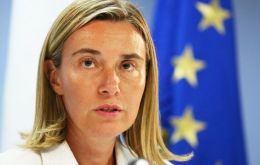
Argentine president Mauricio Macri is scheduled to receive in a week's time the European Union head of foreign affairs, Federica Mogherini who is expected to announce that all is ready to begin, next April, formal negotiations for the long-delayed trade and cooperation agreement between Mercosur and the EU.
-
Thursday, March 3rd 2016 - 05:03 UTC
Brazil leaves key interest rate unchanged at 14.25% for the fifth time running
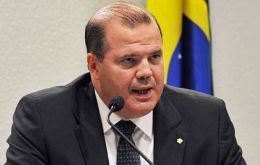
Brazil's central bank kept interest rates on hold on Wednesday as widely expected, opting to avoid inflicting more harm on an economy mired in its worst recession in decades despite a surge in inflation. In a split vote, the bank's monetary policy committee, Copom, kept its benchmark Selic rate at 14.25% for the fifth straight time.
-
Thursday, March 3rd 2016 - 04:57 UTC
Griesa lifts injunctions: 'Argentina needs time to raise money to pay creditors'
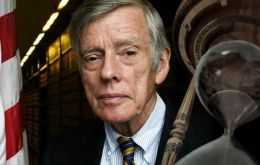
A judge sided with Argentina in its debt standoff on Wednesday, agreeing to let orders protecting creditors expire so that large U.S. hedge funds and smaller entities and people can be paid at least US$6.2 billion to satisfy settlements reached over the last month.
-
Wednesday, March 2nd 2016 - 22:39 UTC
Brazil posts trade surplus in February, as imports plummet with a weak Real
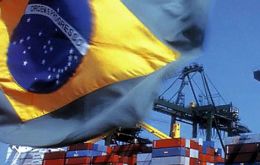
Brazil posted a $3.04 billion trade surplus in February, the Trade Ministry said on Tuesday. Brazil exported $13.3 billion last month and had imports of $10.3 billion.Analysts are expecting a $40 billion trade surplus for 2016, according to a central bank survey released Monday.
-
Tuesday, March 1st 2016 - 07:55 UTC
Chinese injects liquidity and helps boost volatile stock markets
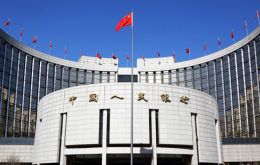
Chinese shares traded higher on Tuesday morning after a fresh stimulus push from the central bank to boost liquidity. The mainland benchmark Shanghai Composite rose 0.3% to 2,696.96 points.
-
Tuesday, March 1st 2016 - 07:32 UTC
China to the rescue of debt-burdened Petrobras with a US$10bn credit
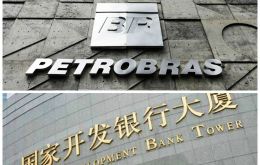
Bonds issued by Brazil's Petrobras ended one to two points higher on Monday as the beleaguered oil company eased refinancing pressure by clinching a US$10bn loan from China. The US$10bn loan from China Development Bank, which can be repaid in cash or oil, will do much to reduce refinancing risks for what is one of the world's most indebted companies.
-
Tuesday, March 1st 2016 - 05:05 UTC
Special Master announces settlement of 15-year battle between Argentina and 'holdout' hedge funds

Daniel A. Pollack, Special Master appointed to preside over settlement negotiations between the Republic of Argentina and its “Holdout” Bondholders, this morning (29 February) issued the following statement:
-
Monday, February 29th 2016 - 11:59 UTC
US economy grows faster in 4Q, but high inventories could impact 1Q of 2016
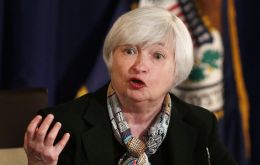
The United States economy grew at a faster pace than previously thought in the fourth quarter of 2015, according to the latest official figures. Growth was an annualized 1% in the quarter, compared with an initial estimate of 0.7%.
-
Monday, February 29th 2016 - 09:31 UTC
Uruguay prepared to lead Mercosur/EU trade negotiations during the whole year
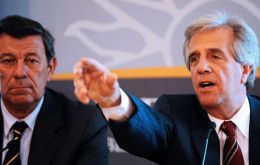
Uruguay, now with the support from Argentina, is very much interested in advancing with the cooperation and trade agreement between Mercosur and the European Union, and is planning for president Tabare Vazquez to attend a Brussels meeting with EU officials to emphasize the matter.
